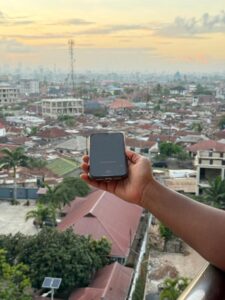Action 5 – SMUS Science Communication Hub
The SMUS Science Communication Hub advances science communication through innovative audio and visual methods. In collaboration with K LAB, a communication and visualisation unit at TU Berlin, the hub facilitates transdisciplinary knowledge exchange and works on the implementation of two tracks: science communication projects and art-based research residencies. The first track aims at transdisciplinary learning and increasing citizen engagement in envisioning WUP in urban spaces. To stimulate societal engagement, the second track supports art-based explorations of the WUP around which the SMUS Regional Campuses are organised.
The Hub will showcase the results at the 5th International SMUS Conference in Berlin (2029) through a public exhibition, an open-access publication, and art-based research workshops.
The 2025 SMUS Science Communication Call invited SMUS network partners to submit innovative project proposals that employed novel and/or alternative ways of tackling Wicked Urban Problems (WUPs).
6 projects were selected, and the final outputs will be shared in 2026.
Please click on the images below to find out more about the projects.
Lessons and contributions from cross-border biodiversity conservation and management and protected areas to regional urban-rural planning. Through policy analysis and collaborative research, this tri-national team is producing three videos that synthesise lessons learned from a tri-border territorial planning pilot based on the transboundary conservation experiences of La Paya National Park, Colombia. Lead Partner: Gisela-Paredes-Leguizamon, University for International Cooperation, San José, Costa Rica.
Research Partners: University of International Cooperation, Costa Rica (UCI; Bahía Portete Kaurrele National Natural Park; IUCN-WCPA Transboundary Conservation Specialists Group; National University of Colombia; SteP for Nature and People srl Consultancy and Ximena Borré Torres Communication Consultancy.
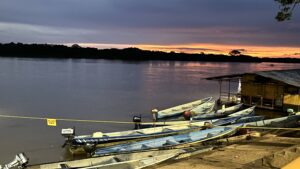
Ec(h)otones Co-creation: Bridging Natural and Built Environment in the North Coast of Java, Indonesia (ECoast) – Production of an Ecotone Time Map. Focusing on coastal ecotones affected by climate change, this project is developing an interactive timemap that integrates scientific data with local knowledge. Lead Partner: Iwan Rudiarto, Diponegoro University, Semarang, Indonesia.
Research Partners: Department of Urban and Regional Planning, Faculty of Engineering, Universitas Diponegoro and Department of Communication Sciences, Faculty of Social and Political Sciences, Universitas Diponegoro.

Zines from the Margins: Waste Pickers, Public Space, and Participatory Urban Storytelling. This participatory project uses a co-produced zine—a low-cost, visual, community-engaged medium—to communicate research on informal waste management and public space in the City of Tshwane (Pretoria). Lead Partner: Kundani Makakavhule, University of Pretoria, City of Tshwane (Pretoria), South Africa.
Research Partners: University of Pretoria, South Africa, Town and Regional Planning and Isaac Zavale, graphic artist.
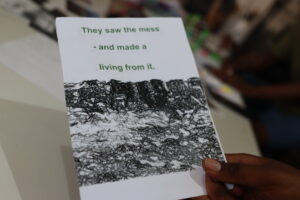
Urban Growth, Cultural Loss: Reviving the Zaramo Indigenous Knowledge for a Sustainable Dar es Salaam City. This project documents the traditional ecological knowledge of the Zaramo people, Dar es Salaam’s original inhabitants, whose insights are vital for addressing environmental degradation, food insecurity, and public health challenges, as informal settlements expand into wetlands and coastal zones.
Research Partners: University of Dar es Salaam College of Humanities, Archaeology and Heritage Studies and the National Museum of Tanzania.
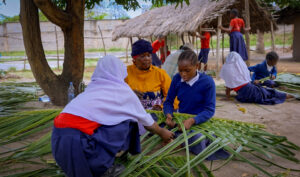
¡Ahí viene la plaga! / Here come the pests! Working across the Brunca Region of Costa Rica and Xalapa, Mexico, this project explores how monoculture and agroecological environments shape socio-environmental understandings of what constitutes a “pest.” Through extradisciplinary research, the team aims to communicate how ecological, cultural, and spatial factors influence these perceptions. Lead Partner: Diana Barquero Perez, Universidad Autónoma de México (UNAM), Mexico City, Mexico.
Research Partners: Universidad Autónoma de México (UNAM), Facultad de Artes y Diseño and Universidad de Costa Rica, Faculty of Humanities, Department of Lingüistics.
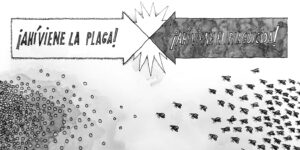
“Niko njiani…Nimefika” – Transit/Arrival: Women and Being in Urban Spaces. Through interviews, sound recordings and poetry, this project examines mobility, safety, inclusion, and the gendered realities of navigating urban spaces. The title, “I am on the way… I am here,” reflects women’s constant negotiation of visibility, safety, and belonging in the city. Lead Partner: Alma Simba, University of Dar es Salaam, Dar es Salaam, Tanzania.
Research Partners: Alma Simba: Artist and Lead Researcher, Gertrude Malizeni: Exhibition Curator, Darragh Amelia: Sound Producer and Karen Chalamilla: Feminist Workshop Facilitator, Dhow Countries Music Academy (DCMA) and Ajabu Ajabu, Dar es Salaam, Tanzania.
